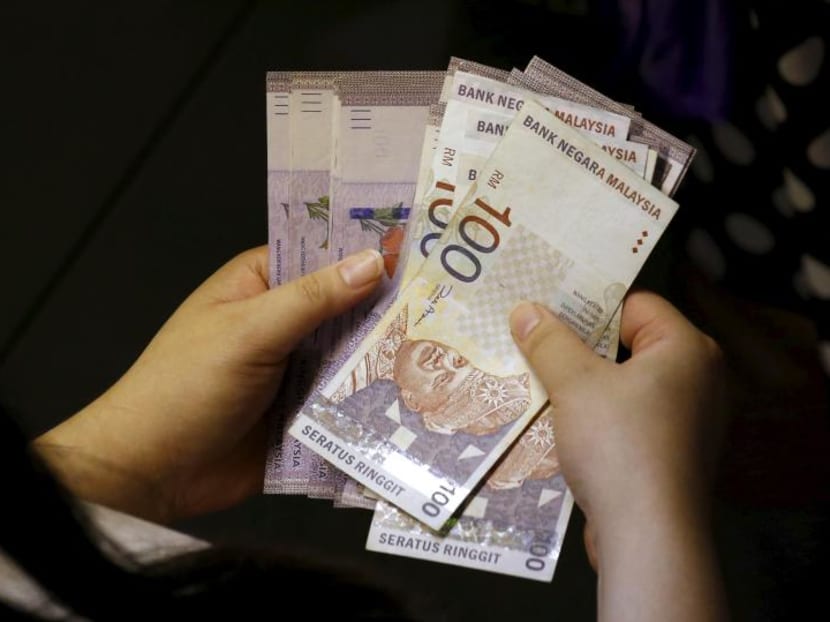Malaysia scraps 6% GST rate to meet Mahathir's election promise
KUALA LUMPUR — Malaysia will scrap a 6 per cent rate on the Goods and Services Tax, fulfilling a campaign promise by Prime Minister Mahathir Mohamad before his unexpected win in last week's general election.

A customer counts her ringgit notes outside a money changer at the central business district in Singapore.
KUALA LUMPUR — Malaysia will scrap a 6 per cent rate on the Goods and Services Tax (GST), fulfilling a campaign promise by Prime Minister Mahathir Mohamad before his unexpected win in last week's general election.
The tax rate will be set at zero per cent from June 1, the Ministry of Finance said in an emailed statement. All businesses must comply with the ruling, it said.
Dr Mahathir's coalition pledged to replace the tax — which disgruntled voters blamed for their rising living costs since it was imposed in 2015 — with a more modest sales-and-services levy. Economists and credit-ratings companies like Moody's Investors Service have warned the move would cut government income and widen the budget deficit if not offset by other revenue-raising measures.
"It's good and bad," said Mr Sanjay Mathur, an economist at Australia & New Zealand Banking Group in Singapore. "If it's just the GST, of course, the budget deficit will widen. But I'm hopeful that they will take compensating measures that will ease the pain."
The government earned RM43.8 billion (S$14.84 billion) in revenue from the GST last year, or 18.3 per cent of tax income, making it the largest contributor after corporate tax receipts. That helped the ousted government of former prime minister Najib Razak to steadily narrow the fiscal deficit over time to 3 per cent of gross domestic product last year.
Moody's said this week that Malaysia's government debt of 50.8 per cent of gross domestic product (GDP) is higher than the median for A-rated peers and without inflows from the GST, would remain elevated and be negative for the credit rating. Fitch Ratings has raised similar risks.
"As the situation is still fluid, Fitch will continue to monitor and review the developments to ascertain the implications for Malaysia's sovereign ratings," Mr Sagarika Chandra, Fitch's sovereign analyst for Malaysia, said in an email after the GST announcement.
On the plus side, the move may help spur consumer spending and ease inflation in an economy that's already booming. Oxford Economics said on Tuesday that the new government's policies, which include scrapping GST, reintroducing fuel subsidies and raising minimum wages, will boost GDP by 0.2 to 0.4 percentage points.
As a net energy exporter, Malaysia is also benefiting from rising oil prices, which may help to offset a drop in tax income. Oil is trading near US$71 a barrel and with geopolitical tensions high, prices are set to remain elevated.
"The GST was key to Malaysia during the worst period" for the budget when oil had bottomed at US$37 a barrel, said Ms Trinh Nguyen, a senior economist at Natixis Asia Ltd. in Hong Kong. With the tax being repealed, Ms Nguyen said she's "not particularly concerned", and it "will be very positive for the consumer sector". BLOOMBERG






